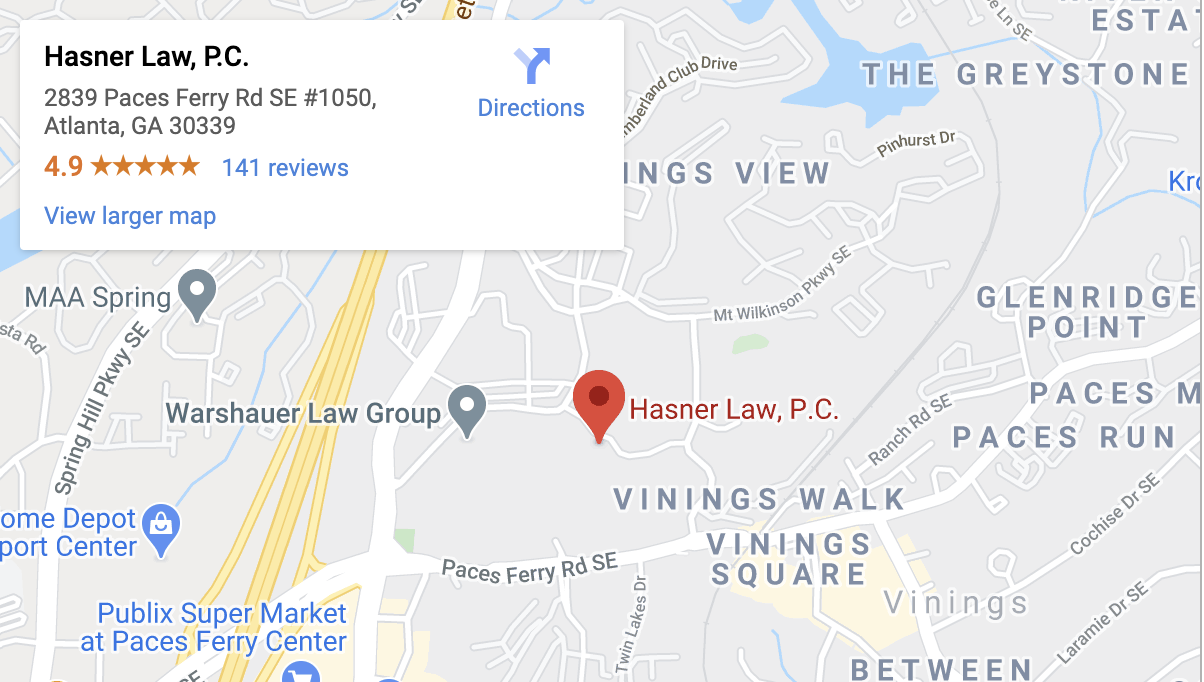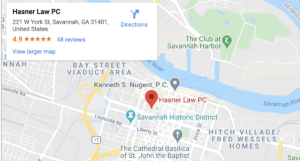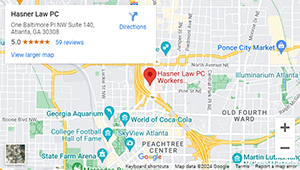What This Page Covers:
- Wrongful Death Claims: These claims provide financial compensation for the loss of a loved one caused by someone else’s negligence or wrongful actions.
- Eligible Damages: Compensation may include coverage for funeral expenses, medical costs, lost income, and emotional suffering.
- Filing Process: A Hasner Law Injury & Workers’ Compensation Attorneys can help navigate the legal complexities, gather essential evidence, and ensure all deadlines are met.
- Hasner Law Injury & Workers’ Compensation Attorneys: Our compassionate, experienced team is dedicated to securing the best possible outcome for your family’s wrongful death claim.
An accident can change lives in an instant, leaving victims and their families to deal with painful and lasting effects. If you’ve lost a loved one due to someone else’s negligence, you may have the right to pursue a wrongful death claim for damages. This process can be emotionally overwhelming, especially when you’re mourning a beloved family member, which is why having a compassionate and experienced Hasner Law Injury & Workers’ Compensation Attorneys is crucial.
At Hasner Law Injury & Workers’ Compensation Attorneys, we recognize the deep sorrow that follows the loss of a loved one. Our attorneys are dedicated to supporting you through every step of the legal journey, managing all aspects of your case so you can focus on healing. Our dependable team will be your unwavering advocate, fighting tirelessly to secure the justice and benefits you and your family deserve.
Damages The Skilled Hasner Law Injury & Workers’ Compensation Attorneys Can Help You Recover
The aftermath of a wrongful death can significantly impact the surviving family members. If you have lost a loved one due to someone else’s recklessness, you should not bear the financial burden of these damages alone. At Hasner Law Injury & Workers’ Compensation Attorneys, our attorneys are dedicated to understanding your unique needs and working tirelessly to pursue damages for both your economic and non-economic losses. Here are some of the damages we may help you secure:
- Funeral expenses
- Loss of inheritance
- Medical costs related to the victim’s injury
- Loss of income
- Loss of financial support
- Pain and suffering
- Loss of consortium
Your wrongful death attorney will work closely with you to understand every detail of your claim and assess the full value of the benefits you may be entitled to recover. We are committed to considering both your current and future needs to ensure you receive the justice you deserve.
How Is Wrongful Death Defined in Georgia?
“Wrongful death” refers to a death caused by the negligent, unlawful, or otherwise wrongful actions of another party. A wrongful death claim involves a civil lawsuit seeking monetary damages from the individual, business, or governmental entity responsible for the fatal injuries. These lawsuits are typically filed by surviving family members of the deceased.
It’s important to note that wrongful death is a civil matter, distinct from criminal law. A wrongful death claim can be pursued regardless of whether criminal charges are filed or pending against the defendant. Civil and criminal cases are separate and independent; the outcome of one does not affect the other. Therefore, even if the defendant is acquitted of criminal charges, a wrongful death claim can still proceed.
Who Has Grounds File a Wrongful Death Claim in Georgia?
In Georgia, only certain family members are eligible to file wrongful death claims for damages. The following individuals can pursue a claim:
- Spouse of the deceased
- Child of the deceased
- Parent of the deceased
- The deceased’s personal representative or executor if there is no living spouse, child, or parent
It is essential to note that no other family member, such as a grandparent or sibling, cannot file a wrongful death claim for their deceased loved one. If you are unsure if you are eligible to file a wrongful death case, the Hasner Law Injury & Workers’ Compensation Attorneys can review your case and help you understand your legal options.
What Is the Statute of Limitations for Wrongful Death Claims in Georgia?
In Georgia, you must file a wrongful death claim by a specific deadline known as the statute of limitations. For wrongful death claims in Georgia, the statute of limitations is two years from the date of the victim’s death. If you do not file a claim within this period, you will lose the right to pursue your case.
Many people believe that two years is ample time to file a claim. However, crucial evidence can be lost or destroyed, and witnesses’ memories may fade over time. Additionally, any delays or complications in your case can consume valuable time. To ensure you have enough time to seek justice, it is in your best interest to consult with an attorney promptly to start your case.
How Hasner Law Injury & Workers’ Compensation Attorneys Can Help with Your Wrongful Death Case
Losing a loved one due to someone else’s negligence is deeply painful, and pursuing a wrongful death claim can add to the emotional burden. At Hasner Law Injury & Workers’ Compensation Attorneys, we understand the challenges you face and are here to support you every step of the way. Our compassionate and experienced attorneys will handle every detail of your case, from gathering evidence to negotiating with insurance companies, ensuring you receive the justice and benefits you deserve.
Let us be your unwavering advocate during this difficult time. With over 100 years of combined experience, our dependable team is dedicated to securing the best possible outcome for you and your family. Trust Hasner Law Injury & Workers’ Compensation Attorneys to manage your case with care and professionalism, allowing you to focus on healing. Contact us today at (678) 888-4878 or visit our contact form.






